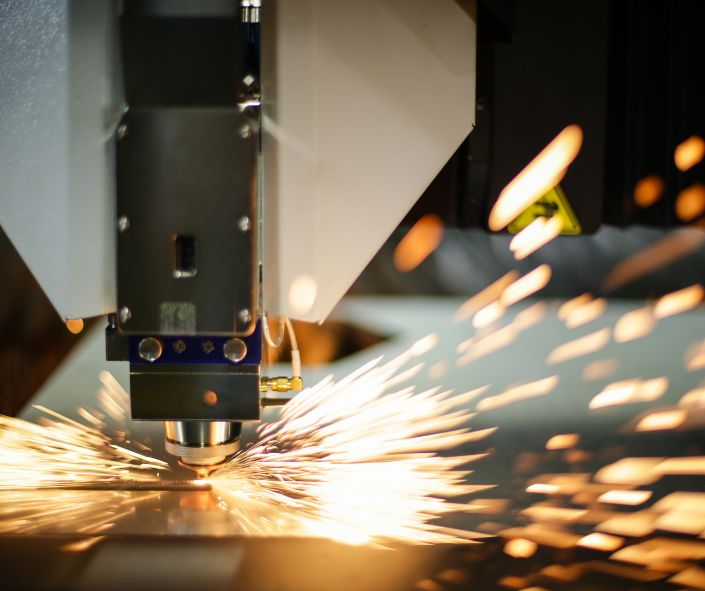In the last few decades, Computer Numerical Control (CNC) machining has revolutionized the field of manufacturing and engineering. CNC machining, which combines modern technology with traditional manufacturing processes, has become an essential method to produce precision products and components to suit a broad range of industries. This article will explore the mechanics, benefits and diverse applications of CNC cutting to emphasize its transformative impact on the modern engineering.
The Mechanics of CNC Machining
CNC machining is a subtractive manufacturing process, meaning it removes material from a solid block, or workpiece, in order to form the desired shape. The computer software used to control machine movement is pre-programmed. The code produced by CNC machines is dependent on the type of machine used as well as the complexity of the product. But the principle of operation remains the exact the same: a fast cutter meticulously cuts off material to create the final product.

The accuracy of CNC machining is one of its greatest advantages. The digitalized nature allows for an accurate and consistent production. This minimizes human error and ensures consistency across batches. This degree of precision is essential in industries where even the small deviations can result in significant consequences, such as medical devices, aerospace manufacturing for automotive and medical devices.
The role of digital computers in CNC Machine Operations
CNC precision and efficiency is a result of the integration of digital technologies. A specific software program automates the entire manufacturing processes. This software converts computer-aided design (CAD) models into a series of precise instructions, which the CNC machine then follows to create the part. These instructions determine everything from direction and speed to the depth and angle of every cut.
In larger industrial facilities on a size, computers can be connected directly to CNC machines. This makes it possible to communicate seamlessly and control. This integration permits real-time adjustments and monitoring to ensure the highest performance, and reduce the time between repairs. The automation of CNC machine tools also allow for continuous operation, greatly increasing productivity while reducing the time it takes to complete.
CNC Machining: Its Benefits
CNC machining comes with numerous benefits over traditional manufacturing techniques. The ability to create intricate, complex parts with a high level of precision is one of the biggest benefits. CNC processing is precise which eliminates the need for manual adjustments or work rework. This reduces waste and increases efficiency. CNC machines are also able to run in a continuous manner. This makes them suitable for large-scale production runs.
CNC machine is also a flexible. A single machine is able to produce different types of parts by simply changing the program. CNC machining is adaptable, making it ideal for prototyping as well for mass production. This allows manufacturers to respond quickly to changes in market demand.
The process of automating CNC machining also improves safety in the workplace. In reducing the requirement for hand-operated procedures, the chance of injuries and accidents is decreased. The consistent quality of CNC manufactured parts enhances the efficiency and reliability of the products, contributing to customer satisfaction.
Industries benefited from CNC Machining Services
The precision, versatility and efficiency of CNC machine are employed in numerous industries. In the aerospace industry, CNC machines produce critical components that must be in compliance with strict safety and performance standards. Medical device manufacturers rely on CNC machines for the manufacturing of complex surgical instruments and implants, in which precision is paramount.
The automotive industry makes use of CNC machining to manufacture engine parts, transmission parts as well as intricate interior and exterior features. Electronics also benefit from CNC Machining, which is able to create small, intricate components for consumer electronics and communication devices. The jewelry and art industries use CNC technology for intricate designs and customized pieces.
The Future of CNC Machining
As technology continues to advance in the field of technology, the capabilities of CNC machining are expected to expand further. Innovations such as multi-axis machining, additive manufacturing integration, and advanced material will push the limits of what can be achieved with CNC technology. In addition, machine learning and AI will improve CNC processing efficiency.
CNC machining that is unmatched in precision, efficiency and flexibility has had a significant impact on the modern world of engineering and manufacturing. The capability of producing extremely precise and complex components can make CNC machining an indispensable tool in many industries. CNC manufacturing, as the technology continues to evolve, will continue to be an integral component in manufacturing’s future.